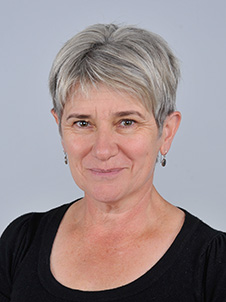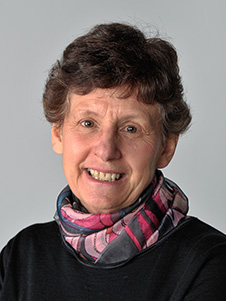
Dr Pauline Horrill.
The convenor of refreshed postgraduate qualifications in primary health care at the University of Otago, Wellington, has brought years of experience working as a field medic for Mèdecins Sans Frontières (Doctors Without Borders) in such global hotspots as Afghanistan and Sierra Leone – as well as on-the-ground work in rural and urban New Zealand – to the task.
Dr Pauline Horrill now works as a GP at the Brooklyn Medical Centre and at Evolve Youth Service in Wellington and is a convenor and teacher of postgraduate primary health care papers at the University.
She approached the task of updating the distance learning curriculum from a very practical point of view and says her background working across rural and urban practices, youth and sexual health organisations, in governance roles and in post graduate education over almost 20 years meant she could see just what changes were needed.
“As a GP, I understand first-hand the frustrations and burn out being experienced at the front line of primary health care delivery. Tapping into this feeling enabled me to look at ‘what’s missing here’.”
Dr Horrill says her time with the international aid agency MSF reinforced her awareness that health care happens within a political and social context.
“It made me fully understand the need for team work, the limits, constraints, logistics and politics of health care, and that to be effective in achieving outcomes you needed to understand the context in which you are working, what the needs are and how to influence change.
“I was part of a movement of health professionals who understood, ‘you can’t stop a genocide with a paracetamol’.”
Dr Horrill says that while clinical training is critical for safety and competence, practitioners in the health care workforce are surrounded by all the challenges that society brings.
“We are the experts at the frontline, but we need some different tools in our tool box to be effective. This means we need to equip primary health care staff to be clinicians/practitioners, and leaders to get our voices heard effectively.”
She believes the new qualifications will give staff in primary health care a professional development pathway which goes beyond the strictly clinical.
“It is now a primary health care qualification which is really inter-professional and reflects the workplace. I would have studied this myself if it had been around, because it is directly applicable to my professional practice.”
The programme to refresh the distance-taught Postgraduate Certificate in Primary Health Care and the Postgraduate Diploma in Primary Health Care has been a team effort led by Professor Sue Pullon, Professor of Primary Health Care, and Director of the Otago Interprofessional Education (IPE) Centre, in the Division of Health Sciences at the University of Otago.

Professor Sue Pullon.
Professor Pullon says changes to the primary care landscape and the New Zealand Health Strategy, which was refreshed in 2016, have led to a shift in the skills required by the primary health care workforce.
“The consultation that we did before we started work on changes to the curriculum identified priority areas of learning which included a sound knowledge of primary health care, strategic and leadership skills, cultural competency, expert communication and the ability to innovate and change.
“The refreshed qualifications will strengthen emphasis on collaborative leadership and teamwork, critical thinking skills, change management and strategy development.”
The new curriculum starts next year, with the interdisciplinary distance learning programme aimed at primary health care professionals, including doctors, nurses, paramedics, pharmacists, physiotherapists, primary health care managers and allied health workers, such as social workers.
The post-graduate certificate represents about 500 hours of study over a one-year period, or the equivalent on a part-time basis over a longer period of up to three years.








